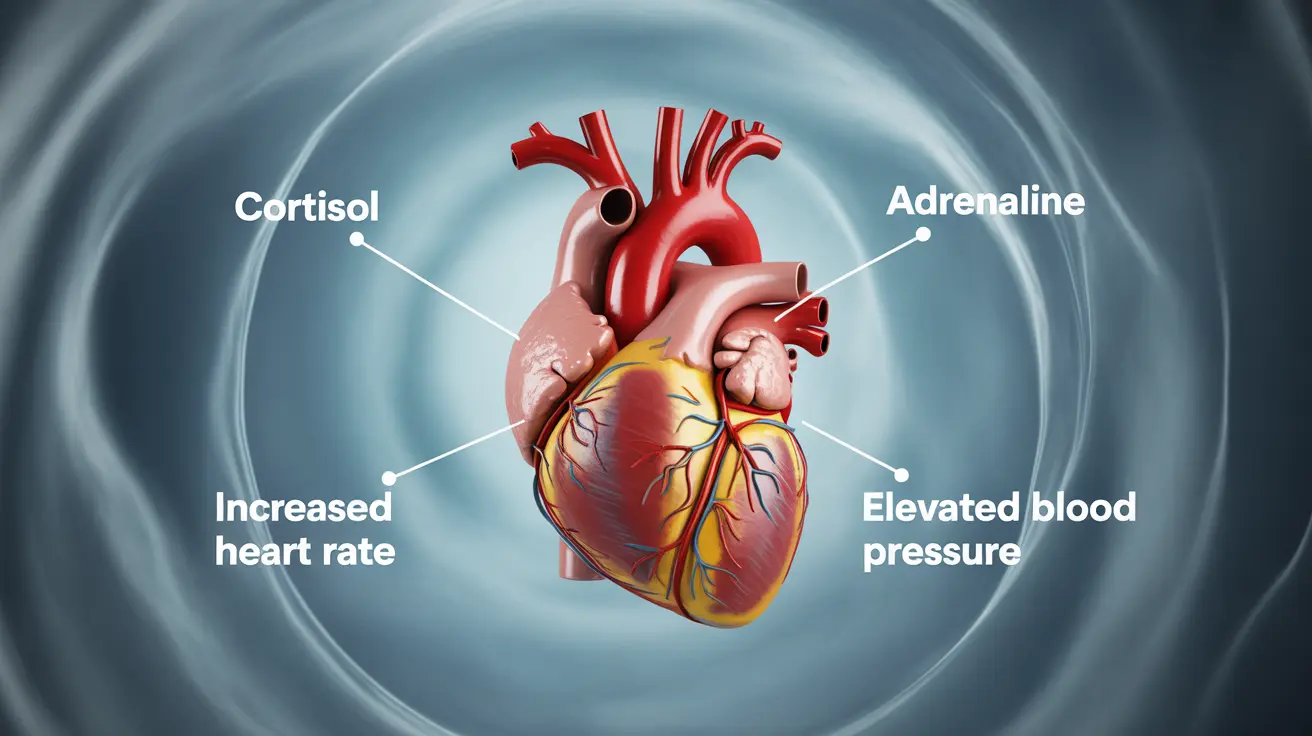The relationship between anxiety and cardiovascular health has become an increasingly important focus in medical research, particularly as more young adults experience anxiety disorders. Understanding whether anxiety can cause heart attacks or strokes is crucial for both healthcare providers and individuals managing anxiety conditions.
Recent studies have shown that chronic anxiety and other mental health conditions can significantly impact heart health, especially in adults under 40. This connection raises important questions about prevention, screening, and management strategies for those affected by anxiety disorders.
Understanding the Anxiety-Heart Health Connection
Anxiety disorders can affect cardiovascular health through multiple biological mechanisms. When experiencing anxiety, the body releases stress hormones like cortisol and adrenaline, which can temporarily increase heart rate and blood pressure. Over time, these physiological responses can contribute to inflammation and other cardiovascular risk factors.
Biological Mechanisms at Play
- Increased blood pressure
- Elevated heart rate
- Higher levels of inflammation markers
- Changes in blood clotting factors
- Disrupted sleep patterns
- Irregular heart rhythms
Impact on Young Adults
Young adults with anxiety face unique challenges regarding heart health. While they typically have lower baseline cardiovascular risks, chronic anxiety can accelerate the development of heart problems. This is particularly concerning as anxiety disorders often begin in early adulthood, potentially affecting cardiovascular health for decades.
Risk Factors in Young Adults
- Increased likelihood of unhealthy coping mechanisms
- Delayed medical care due to anxiety
- Poor sleep habits
- Reduced physical activity
- Irregular eating patterns
Prevention and Management Strategies
Managing anxiety effectively is crucial for protecting heart health. A comprehensive approach typically includes both mental health support and lifestyle modifications to reduce cardiovascular risk factors.
Lifestyle Modifications
- Regular physical exercise
- Stress-reduction techniques like meditation
- Maintaining a heart-healthy diet
- Adequate sleep hygiene
- Regular medical check-ups
- Cognitive behavioral therapy when appropriate
The Importance of Early Screening
Healthcare providers increasingly recognize the need for comprehensive screening in patients with anxiety disorders. This includes regular monitoring of blood pressure, cholesterol levels, and other cardiovascular risk factors, even in younger adults who might not typically receive such screening.
Frequently Asked Questions
Can anxiety directly cause a heart attack or stroke, especially in young adults under 40?
While anxiety alone rarely directly causes a heart attack or stroke, chronic anxiety can significantly increase risk factors that contribute to cardiovascular events, particularly when combined with other health issues.How does chronic anxiety increase the risk of heart disease and stroke biologically?
Chronic anxiety triggers ongoing stress responses that increase inflammation, blood pressure, and heart rate while potentially disrupting normal cardiovascular function and promoting arterial damage over time.What lifestyle changes can help reduce heart attack and stroke risk related to anxiety and other mental health conditions?
Regular exercise, stress management techniques, healthy eating, adequate sleep, and working with mental health professionals can help reduce both anxiety and associated cardiovascular risks.Why is untreated anxiety linked to higher chances of heart problems in younger adults?
Untreated anxiety can lead to chronic stress responses, poor health behaviors, and delayed medical care, which collectively increase cardiovascular risk factors even in younger populations.Should people with anxiety or depression be regularly screened for heart disease risk factors?
Yes, regular screening for cardiovascular risk factors is recommended for people with anxiety or depression, regardless of age, due to the established connection between mental health and heart health.




